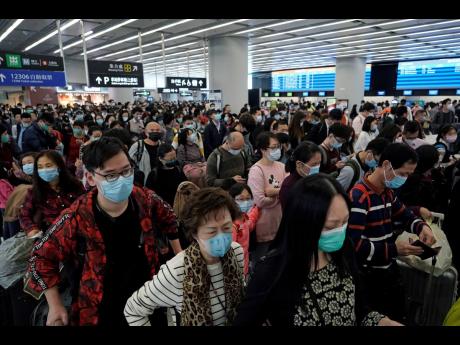Cities locked down as virus spreads
BEIJING (AP):
Chinese authorities Thursday moved to lock down three cities with a combined population of more than 18 million in an unprecedented effort to contain the deadly new virus that has sickened hundreds of people and spread to other parts of the world during the busy Lunar New Year travel period.
The open-ended lockdowns are unmatched in size, embracing more people than New York City, Los Angeles and Chicago put together.
The train station and airport in Wuhan, the epicentre of the outbreak, were shut down, and ferry, subway and bus service was halted. Normally bustling streets, shopping malls, restaurants and other public spaces in the city of 11 million were eerily quiet. Police checked all incoming vehicles but did not close off the roads.
Epidemic prevention control
In the capital, Beijing, officials cancelled “major events” indefinitely, including traditional temple fairs that are a staple of holiday celebrations, in order to “execute epidemic prevention and control”. The Forbidden City, the palace complex in Beijing that is now a museum, announced it will close indefinitely on Saturday.
Seventeen people have died in the outbreak, all of them in and around Wuhan. Close to 600 have been infected, the vast majority of them in Wuhan, and many countries have begun screening travellers from China for symptoms of the virus, which can cause fever, coughing, trouble breathing and pneumonia.
Chinese officials have not said how long the shutdowns will last. While sweeping measures are typical of China’s communist government, large-scale quarantines are rare around the world, even in deadly epidemics, because of concerns about infringing on people’s liberties. And the effectiveness of such measures is unclear.
Jonathan Ball, a professor of virology at molecular virology at the University of Nottingham in Britain, said the lockdowns appear to be justified scientifically.
“Until there’s a better understanding of what the situation is, I think it’s not an unreasonable thing to do,” he said. “Anything that limits people’s travels during an outbreak would obviously work.”
But Ball cautioned that any such quarantine should be strictly time-limited.

